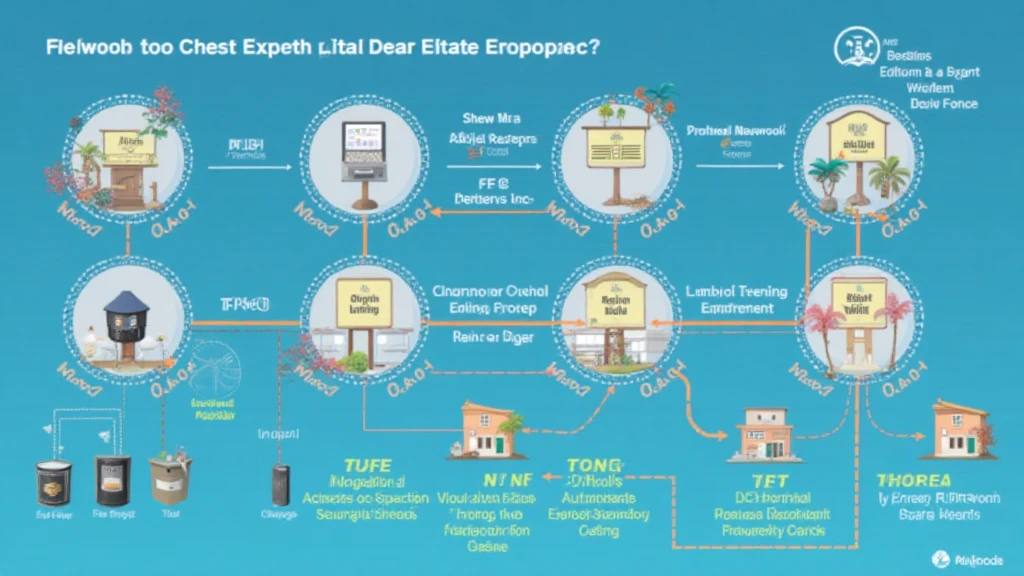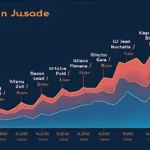NFT Real Estate Authentication Tools: A Game Changer in Property Verification
With $4.1 billion lost to insufficient property verification in 2024, the real estate industry faces an urgent need for innovative solutions. The integration of NFT technology into property authentication is a compelling answer to this challenge. As we delve deeper into the world of NFT real estate authentication tools, we will uncover how they are reshaping property ownership, improving security, and driving efficiency in transactions.
The Need for Reliable Property Authentication
In a booming market where fraudsters are becoming more sophisticated, traditional methods of property verification often fall short. According to recent data, about 30% of real estate transactions experience some form of misrepresentation or fraud. This troubling statistic highlights a pressing demand for advanced authentication solutions, particularly in the dynamic landscape of digital real estate.
As NFTs (Non-Fungible Tokens) have gained prominence within the blockchain sphere, their application in real estate offers a transformative solution to long-standing problems. NFTs allow for unique digital representations of properties, ensuring authenticity and verifiable ownership.

What Are NFT Real Estate Authentication Tools?
NFT real estate authentication tools serve to tokenize properties, providing a secure, immutable, and easily accessible digital record of ownership. Unlike physical documents, which can be lost, forged, or incorrectly filed, NFTs rely on blockchain technology to create a reliable chain of custody for real estate.
Here’s how they work:
- Tokenization: Each property is assigned a unique NFT that functions as its digital certificate, detailing ownership history, property specifications, and relevant transactions.
- Verification: Utilizing smart contracts, the NFT confirms the authenticity of the property by linking it to verifiable data such as land registries.
- Security: The decentralized nature of blockchain technology protects against tampering or unauthorized changes.
Use Cases of NFT Real Estate Authentication
The integration of NFT technology into real estate isn’t merely theoretical. Various stakeholders across the industry are already implementing these tools.
1. Property Transactions
Real estate transactions can be long and cumbersome, often requiring significant paperwork to establish ownership. NFT authentication simplifies this process, allowing buyers and sellers to transfer property in a matter of minutes through smart contracts.
2. Fractional Ownership
NFTs allow for fractional ownership of high-value properties, enabling multiple investors to hold a share without the complexities of traditional joint ownership. This innovation opens doors to investment for individuals who previously could not afford real estate.
3. Enhanced Transparency
Every transaction linked to an NFT is recorded on the blockchain, providing a transparent history of ownership and enhancing trust among buyers and sellers. This ensures that potential buyers have access to accurate information about property history.
4. Compliance with Local Regulations
As markets mature, regulatory frameworks are increasingly accommodating blockchain technology. Countries like Vietnam are establishing clearer guidelines for the use of blockchain in property transactions, which bolsters confidence in adopting NFT tools.
The Benefits of Using NFT Real Estate Authentication Tools
As we consider the infrastructure of NFT real estate authentication tools, several compelling benefits emerge:
- Reduced Fraud Risk: By providing a clear, verifiable ownership record, NFTs minimize the risks associated with property fraud.
- Cost Efficiency: Smart contracts automate parts of the transaction process, saving time and legal fees typically incurred.
- Global Access: Digital assets can be seamlessly traded across borders, broadening market access for real estate investments.
Exploring the Growth of NFT Technologies in Vietnam
Vietnam’s real estate market is witnessing an impressive growth trend, with a reported increase in digital property transactions by over 50% in the past year. The rising interest in NFTs among Vietnamese investors showcases a shift toward technological adoption.
Statistics indicate that 65% of Vietnamese property developers are exploring blockchain solutions to enhance transactional transparency and reduce costs. It’s evident that the local market is rapidly aligning with global trends in digitization.
Promoted by Blockchain Security Standards
The security of NFT applications is further reinforced by adherence to blockchain standards, or as they say in Vietnamese, tiêu chuẩn an ninh blockchain, which enhance the integrity of transactions. Industry experts recommend continuous audits and evaluations to maintain compliance with emerging regulations.
Challenges Ahead
While there is immense potential in applying NFT real estate authentication tools, some challenges remain:
- Regulatory Uncertainty: Navigating the evolving regulations may pose hurdles for developers and users alike in the early stages of adoption.
- Market Adoption: There is a learning curve related to understanding NFT technology and its implications for both buyers and sellers.
Conclusion: A Bright Future for NFT Real Estate Authentication
The convergence of NFT technology and real estate marks an exciting chapter in property transactions. From improving efficiency to building trust, NFT real estate authentication tools stand to revolutionize how individuals buy, sell, and invest in properties.
As we gather insights from various implementations, it’s clear that the future is not just a vision but a reality waiting to be embraced. Together, we are witnessing a paradigm shift that could define the future of real estate.
For more information and to stay abreast of market trends, visit officialcryptonews.
Author: Dr. Alex Thompson, a recognized authority in blockchain technology, has published over 25 papers in the field and led audits for several high-profile projects.




